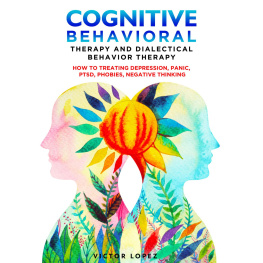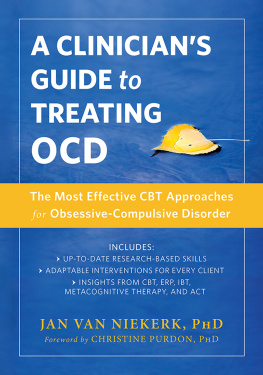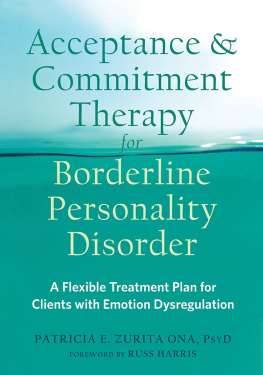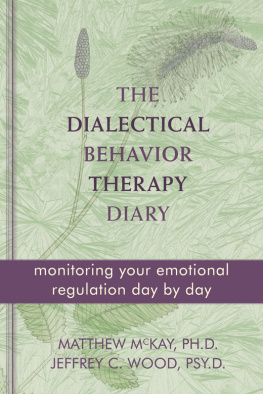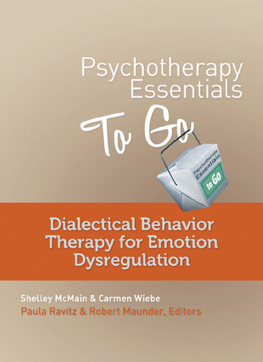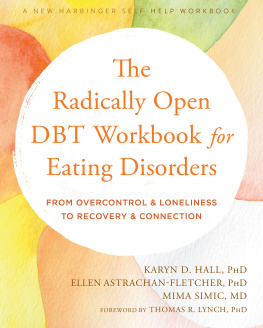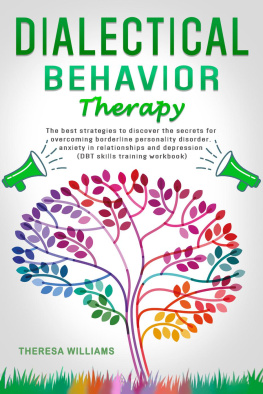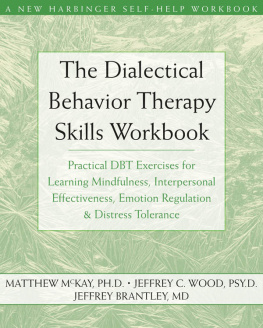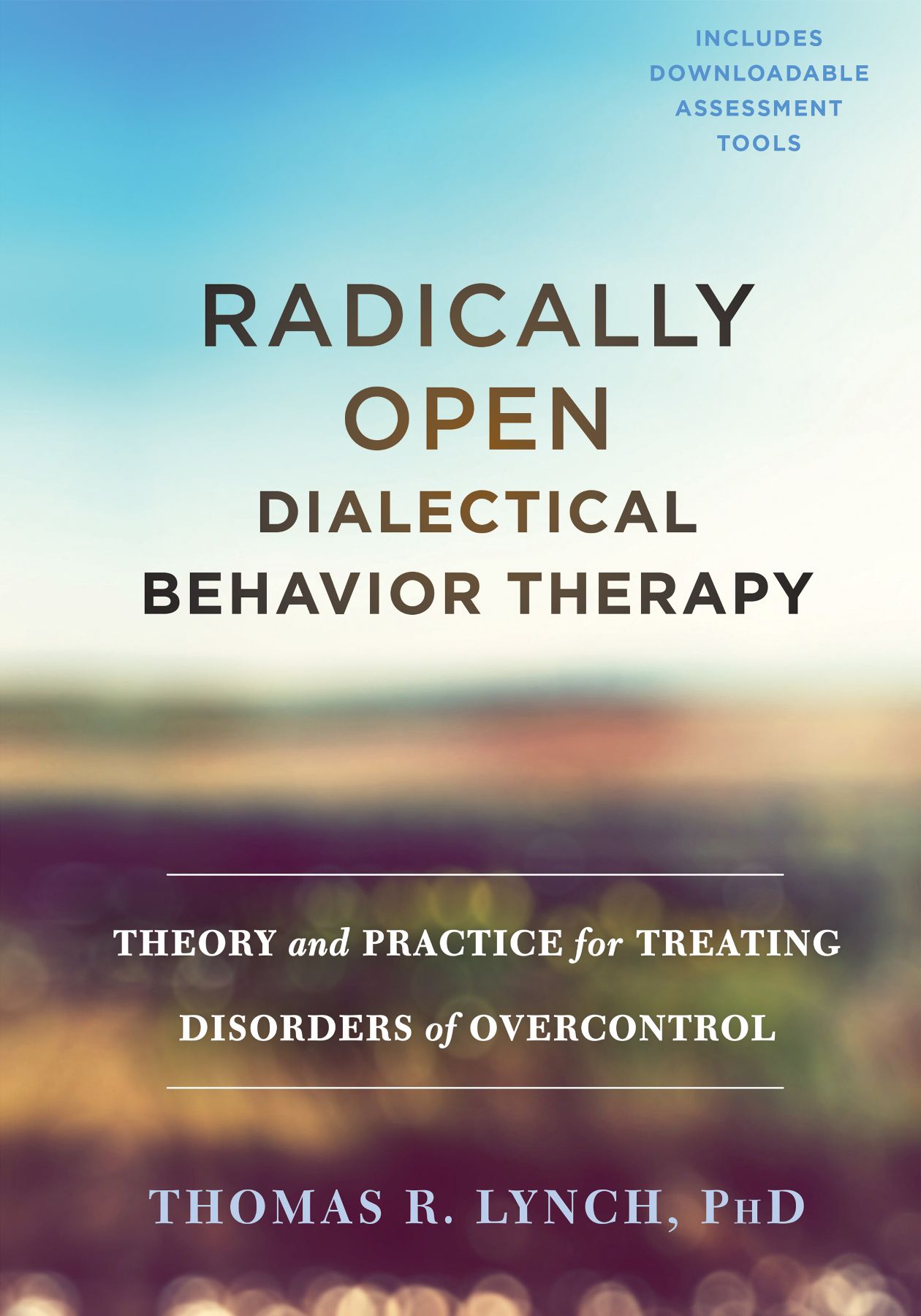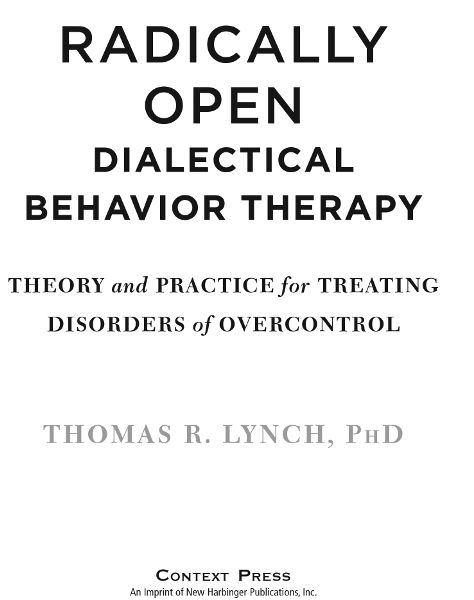Thomas R. Lynch - Radically Open Dialectical Behavior Therapy: Theory and Practice for Treating Disorders of Overcontrol
Here you can read online Thomas R. Lynch - Radically Open Dialectical Behavior Therapy: Theory and Practice for Treating Disorders of Overcontrol full text of the book (entire story) in english for free. Download pdf and epub, get meaning, cover and reviews about this ebook. year: 2018, publisher: Context Press, genre: Science. Description of the work, (preface) as well as reviews are available. Best literature library LitArk.com created for fans of good reading and offers a wide selection of genres:
Romance novel
Science fiction
Adventure
Detective
Science
History
Home and family
Prose
Art
Politics
Computer
Non-fiction
Religion
Business
Children
Humor
Choose a favorite category and find really read worthwhile books. Enjoy immersion in the world of imagination, feel the emotions of the characters or learn something new for yourself, make an fascinating discovery.

- Book:Radically Open Dialectical Behavior Therapy: Theory and Practice for Treating Disorders of Overcontrol
- Author:
- Publisher:Context Press
- Genre:
- Year:2018
- Rating:4 / 5
- Favourites:Add to favourites
- Your mark:
Radically Open Dialectical Behavior Therapy: Theory and Practice for Treating Disorders of Overcontrol: summary, description and annotation
We offer to read an annotation, description, summary or preface (depends on what the author of the book "Radically Open Dialectical Behavior Therapy: Theory and Practice for Treating Disorders of Overcontrol" wrote himself). If you haven't found the necessary information about the book — write in the comments, we will try to find it.
While traditional dialectical behavioral therapy (DBT) has shown tremendous success in treating people emotion dysregulation, there have been few resources available for treating those withovercontroldisorders. OC has been linked to social isolation, aloof and distant relationships, cognitive rigidity, risk aversion, a strong need for structure, inhibited emotional expression, and hyper-perfectionism. And yet perhaps due to the high value our society places on the capacity to delay gratification and inhibit public displays of destructive emotions and impulses problems linked with OC have received little attention or been misunderstood. Indeed, people with OC are often considered highly successful by others, even as they suffer silently and alone.
RO-DBT is based on the premise that psychological well-being involves the confluence of three factors: receptivity, flexibility, and social-connectedness. RO-DBT addresses each of these important factors, and is the first treatment in the world to prioritize social-signaling as the primary mechanism of change based on a transdiagnostic, neuroregulatory model linking the communicative function of human emotions to the establishment of social connectedness and well-being. As such, RO-DBT is an invaluable resource for treating an array of disorders that center around overcontrol and a lack of social connectedness such as anorexia nervosa, chronic depression, postpartum depression, treatment-resistant anxiety disorders, autism spectrum disorders, as well as personality disorders such as avoidant, dependent, obsessive-compulsive, and paranoid personality disorder.
Written for mental health professionals, professors, or simply those interested in behavioral health, this seminal book along with its companion,Radically-Open Dialectical Behavior Therapy Skills Training Manual(available separately) provides everything you need to understand and implement this exciting new treatment in individual therapy including theory, history, research, ongoing studies, clinical examples, and future directions.
Thomas R. Lynch: author's other books
Who wrote Radically Open Dialectical Behavior Therapy: Theory and Practice for Treating Disorders of Overcontrol? Find out the surname, the name of the author of the book and a list of all author's works by series.

